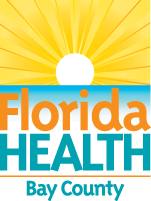It's a New Day in Public Health.
The Florida Department of Health works to protect, promote, and improve the health of all people in Florida through integrated state, county, and community efforts.
Rabid Raoon Captured in City of Springfield
November 03, 2016
Pet owners urged to vaccinate their animals against rabies
NOVEMBER 3, 2016
RABID RACCOON CAPTURED IN THE CITY OF SPRINGFIELD
Pet owners urged to vaccinate their animals against rabies
Contact:
Heather Kretzer
Heather.Kretzer@flhealth.gov
850-872-4455, ext. 1344
PANAMA CITY, Fla.- A raccoon captured near the intersection of East 7th Street and Russ Lake Drive in the City of Springfield has tested positive for rabies. This is Bay County’s third laboratory confirmed rabid animal of 2016. In January, a rabid raccoon was killed near the intersection of North Fox Avenue and Pittsburgh Street. In March, a rabid raccoon was captured near the intersection of Tram Road and Tyndall Parkway.
The Florida Department of Health in Bay County would like to remind citizens that Florida Law requires all dogs, cats, and ferrets over four months of age to be vaccinated for rabies by a licensed veterinarian. An animal is considered unvaccinated if the vaccination has expired or it was not given by a licensed veterinarian. The first rabies vaccination an animal receives is only good for one year. Unvaccinated pets should never be outside without direct and continuous adult supervision.
Rabies is a disease of the nervous system and is fatal to warm blooded animals and humans. The rabies virus is secreted in the saliva of an infected animal or human. The virus can also be found in nervous system tissues. Exposure to the virus can be through broken skin (bites, scratches) or mucous membrane (eyes, nose, mouth) contact with infected saliva or tissues. Rabies in humans can be prevented if rabies medication is received in a timely manner following an exposure. Rabies is fatal after symptoms are present.
To minimize the chance of a wild animal-pet conflict, dogs and cats should be fed indoors. If they are fed outdoors, food should only be left outside for a short period of time and then removed. Any spilled food should be cleaned up. Pet food left outdoors and uncovered garbage will attract wild animals to your yard. Placing or offering food or garbage in such a manner that it attracts raccoons is illegal in Florida.
Avoid contact with stray domestic or wild animals as they can carry diseases which can infect humans. Hunters should wear rubber gloves and protective eyewear when dressing/butchering wild animals to avoid exposure to rabies and other diseases.
The following advice is issued:
— Secure outside garbage in covered containers to avoid attracting wild animals.
— Do not leave pet food outside overnight as this attracts wild animals to your home and increases the chance of a pet-raccoon conflict.
— If bitten or scratched by an animal, wash the wound immediately with soap and water. Seek medical treatment as needed and report the injury to the Florida Department of Health in Bay
County at (850) 872-4455, X1125. If the animal is stray or wild, call 911 or Bay County
Animal Control at (850) 767-3333 and report the animal’s location. In the City of Lynn Haven, call the Lynn Haven Police Department at (850) 265-1112. Follow up. Rabies is
preventable when treatment is provided in a timely manner.
— If your dog or cat fights with a wild animal, contact the Florida Department of Health in Bay County immediately. The wild animal will need to be tested for rabies. Your animal may need to be quarantined. Do not shoot suspected rabid animals in the head.
— Do not touch animals that are not yours. Avoid contact with all wildlife, especially raccoons, bats, bobcats, otters, foxes, skunks and coyotes. No animal is too young to have rabies. A rabid animal may act friendly.
— Wear rubber gloves and protective eyewear when dressing/butchering wild animals to avoid exposure to rabies and other diseases. Cook all meat thoroughly to 165 degrees.
— For general questions pertaining to stray animals or odd acting wild animals, contact your area’s animal control department.
— For questions regarding the health of a pet, contact a veterinarian.
— Teach your children about rabies and to never touch a bat.
For further information on rabies, go to the Florida Department of Health website: website https://www.floridahealth.gov/environment/medicine/rabies/rabies-index.html or contact Michael Templin, Environmental Health Specialist at 850-872-4720, X1125.
About the Florida Department of Health
The department, nationally accredited by the Public Health Accreditation Board, works to protect, promote and improve the health of all people in Florida through integrated state, county and community efforts.
Follow us on Twitter at @HealthyFla and on Facebook. For more information about the Florida Department of Health please visit www.FloridaHealth.gov.
For Media Inquiries
@FLHealthEmerald
@HealthyFla





Connect with DOH